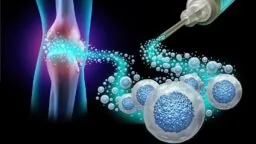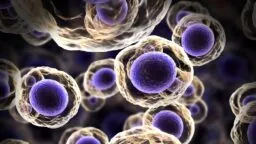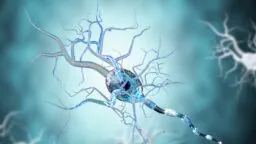Rejuvenation Roundup November 2024
- Reprogramming and stem cell approaches are among the star players this month.

While the United States has just celebrated a holiday that opposes caloric restriction, researchers there and around the world continue to discover the effects of it and other interventions against aging. Let’s see what’s been done in November.
Interviews
 Rozalyn Anderson Explains Caloric Restriction: At the University of Wisconsin-Madison, Dr. Rozalyn Anderson is studying one of the oldest-known and yet most powerful anti-aging interventions: caloric restriction (CR).
Rozalyn Anderson Explains Caloric Restriction: At the University of Wisconsin-Madison, Dr. Rozalyn Anderson is studying one of the oldest-known and yet most powerful anti-aging interventions: caloric restriction (CR).
Advocacy and Analysis
AI in Longevity: The Reality Today: Back in 2006, a website called “The Death Clock” appeared on the internet, with a promise to answer one of life’s greatest questions: “When will I die?” Just like the fascination with death dates drove internet traffic to that particular site in the 90s, so too does the interest in a healthier, longer lifespan drive longevity investment in 2024.
 The Best Talks of GSA 2024: We bring you a selection of presentations from the annual conference organized by the Gerontological Society of America.
The Best Talks of GSA 2024: We bring you a selection of presentations from the annual conference organized by the Gerontological Society of America.
Research Roundup
Towards Fine-Tuned Control of Gene Expression: In a groundbreaking Nature paper, researchers have developed synthetic regulatory sequences that could prevent targeted gene therapies from having effects in unwanted cell types.
 Ketogenic Diet Effective Against Multiple Sclerosis in Mice: Scientists have found that both a ketogenic diet and oral supplementation with ketone bodies alleviate symptoms of multiple sclerosis, a serious autoimmune disorder, in a mouse model.
Ketogenic Diet Effective Against Multiple Sclerosis in Mice: Scientists have found that both a ketogenic diet and oral supplementation with ketone bodies alleviate symptoms of multiple sclerosis, a serious autoimmune disorder, in a mouse model.
Mesenchymal Stem Cells Rejuvenate Aged Mice: In a new study, the researchers administered human umbilical cord-derived mesenchymal stem cells to aged mice and observed reduced degeneration in multiple organs, changes to microbial composition, metabolic alterations, improvements in behavior and ability, and reduced fearfulness.
 Extracellular Vesicles for Treating Arthritis: A study in Pharmacological Research has found that small extracellular vesicles derived from embryonic stem cells alleviate osteoarthritis in cells and mice.
Extracellular Vesicles for Treating Arthritis: A study in Pharmacological Research has found that small extracellular vesicles derived from embryonic stem cells alleviate osteoarthritis in cells and mice.
Rejuvenating the Hippocampus With Metabolites: Researchers have reported in Aging Cell that injecting specific one-carbon metabolites into the hippocampus can rejuvenate its cells.
 A Senolytic Accelerates Reproductive Aging in Aged Mice: In a new study, researchers tested the impact of the senolytic drug ABT-263 on the reproductive systems of old female mice. ABT-263 treatment did not rescue age-related changes in hormonal levels, further depleted ovarian reserves, and didn’t improve most of the tested signs of reproductive aging.
A Senolytic Accelerates Reproductive Aging in Aged Mice: In a new study, researchers tested the impact of the senolytic drug ABT-263 on the reproductive systems of old female mice. ABT-263 treatment did not rescue age-related changes in hormonal levels, further depleted ovarian reserves, and didn’t improve most of the tested signs of reproductive aging.
Preventing Alzheimer’s Proteins From Accumulating: Boosting a key autophagy-related protein discourages a core component of Alzheimer’s from taking hold, according to a study published in Aging Cell.
 Study of Direct Reprogramming Challenges Consensus: Scientists have shown that in a direct cellular reprogramming scenario, neurons are produced almost exclusively by a rare subtype of multipotent cells. Their findings, they claim, change our understanding of reprogramming, but not everyone agrees.
Study of Direct Reprogramming Challenges Consensus: Scientists have shown that in a direct cellular reprogramming scenario, neurons are produced almost exclusively by a rare subtype of multipotent cells. Their findings, they claim, change our understanding of reprogramming, but not everyone agrees.
Engineering T Cells to Fight Brain Cancer: Researchers publishing in Nature have reported a new advance in developing chimeric antigen receptor (CAR) T cells to fight solid tumors in the brain.
 Intranasal Spray Alleviates Early Alzheimer’s in Mice: A novel therapy based on induced neuronal stem cells shows promise in a mouse model of Alzheimer’s disease – and it can be administered intranasally.
Intranasal Spray Alleviates Early Alzheimer’s in Mice: A novel therapy based on induced neuronal stem cells shows promise in a mouse model of Alzheimer’s disease – and it can be administered intranasally.
Dietary Diversity Is Associated With Delayed Aging: An analysis of data from over twenty thousand people has indicated that greater dietary diversity is associated with slower biological aging.
 How Exercise Preserves Function in Motor Nerves: In Aging Cell, researchers have described the specific cell types that give exercise protective effects against motor nerve degeneration.
How Exercise Preserves Function in Motor Nerves: In Aging Cell, researchers have described the specific cell types that give exercise protective effects against motor nerve degeneration.
Finding Cells That Send Signals Against Arthritis: In Aging, researchers have reported that deriving extracellular vesicles from mesenchymal stromal cells (MSCs) in fat tissue has beneficial effects in models of osteoarthritis.
 Building an Atlas of Human Ovarian Aging: The researchers of a Nature Aging paper used multi-omics approaches to investigate cellular, molecular, and genetic drivers of human ovarian aging.
Building an Atlas of Human Ovarian Aging: The researchers of a Nature Aging paper used multi-omics approaches to investigate cellular, molecular, and genetic drivers of human ovarian aging.
Time-restricted eating reveals a “younger” immune system and reshapes the intestinal microbiome in human: Overall, TRE showed multiple anti-aging effects, which may help humans maintain a healthy lifestyle to stay “young”.
Association of dietary anthocyanidins intake with all-cause mortality and cardiovascular diseases mortality in USA adults: This research indicates that an appropriate dietary intake of anthocyanins is associated with a reduction in overall mortality rates
Acute exercise boosts NAD+ metabolism of human peripheral blood mononuclear cells: These results demonstrate that acute exercise triggers NAD+ biosynthesis of human PBMCs with potential implications for immunometabolism, immune effector function, and immunological exercise adaptions.
High-intensity interval exercise is more efficient than medium intensity exercise at inducing neurogenesis: These findings suggest that HIIT enhances neurogenesis more robustly than MIIT in both niches, with HCA1 playing a crucial role in V-SVZ neurogenesis.
Pterostilbene Targets Hallmarks of Aging in the Gene Expression Landscape in Blood of Healthy Rats: The findings provide a rationale for pre-clinical and clinical longevity studies and encourage investigations on PTS in maintaining cellular homeostasis, decelerating the process of aging, and improving conditions with chronic inflammation.
Effect of nicotinamide riboside on airway inflammation in COPD: a randomized, placebo-controlled trial: In exploratory analyses, treatment with NR showed indications of upregulated gene pathways related to genomic integrity in the airways and reduced epigenetic aging, possibly through a reduction in cellular senescence.
Investigating the efficacy of ergothioneine to delay cognitive decline in mild cognitively impaired subjects: These results add to existing data that ergothioneine is safe for extended consumption and may hold the potential to delay cognitive decline in elderly adults.
Sex Differences in Response to Diet Enriched with Glutathione Precursors in the Aging Heart: This work supports the concept that aged male and female hearts are phenotypically different. These basic differences may affect the response to pharmacological and diet interventions, including antioxidants.
The Administration of Resveratrol and Vitamin C Reduces Oxidative Stress in Postmenopausal Women: Vitamin C increased the total antioxidant capacity of postmenopausal women with insulin resistance by up to 33%. However, using resveratrol and/or vitamin C alone or in combination did not present significant differences in insulin resistance.
Human Supplementation with AM3, Spermidine, and Hesperidin Enhances Immune Function, Decreases Biological Age, and Improves Oxidative-Inflammatory State: The researchers propose that this supplement may be a strategy to rejuvenate biological age and achieve healthy aging.
Metabolite signatures of chronological age, aging, survival, and longevity: These results characterize many metabolites involved in aging and point to nutrition as a source of intervention for healthy aging therapeutics.
A small-molecule screen identifies novel aging modulators by targeting 5-HT/DA signaling pathway: This study offers a way for the discovery of drugs that promote healthy aging, and provides potential interventions for preventing behavioral deterioration in the elderly.
Mendelian randomization analyses support causal relationships between gut microbiome and longevity: These microbial taxa and pathways may potentially play a protective role in promoting longevity or have a suppressive effect on lifespan.
Gut microbiota and epigenetic age acceleration: a bi-directional Mendelian randomization study: This study implicates the potential causal effects of specific microbiota on EAA, potentially providing novel insights into the prevention aging through specific gut microbiota.
Slowed epigenetic aging in Olympic champions compared to non-champions: The data suggest that rigorous and long-term exercise from adolescence to adulthood has beneficial effects on epigenetic aging.
Attitudes towards geroprotection: measuring willingness, from lifestyle changes to drug use: Future research may want to delve deeper into the role of facilitating trust relations between medical institutions and the public in promoting the use of geroprotective drugs.
Negative effects of lifespan extending intervention on resilience in mice: None of the three age-sensitive assays responded to the health-extending interventions in the way the researchers expected, and for some assays, including anesthesia response, interventions actually worsened outcomes.
Stem cell transplantation extends the reproductive life span of naturally aging cynomolgus monkeys: These findings demonstrate the beneficial effects of M-cell transplantation on aging ovaries and expand the understanding of the molecular mechanisms underlying ovarian aging and stem cell-based alleviation of this process.
Restoration of hair follicle inductive properties by depletion of senescent cells: These data revealed that senolytic treatment of cultured human dermal papilla cells markedly increased their inductive potency in hair follicle regeneration.
News Nuggets
 New Crowdfunding Project Looks for a “Better Rapamycin”: Ora Biomedical and the Rapamycin Longevity Lab have launched a project to screen more than 600 mTOR inhibitors in the hope of finding some that are superior to geroscience’s poster child, rapamycin.
New Crowdfunding Project Looks for a “Better Rapamycin”: Ora Biomedical and the Rapamycin Longevity Lab have launched a project to screen more than 600 mTOR inhibitors in the hope of finding some that are superior to geroscience’s poster child, rapamycin.
Coming Up
The Longevity Summit Announces Fourth Annual Event: The Longevity Summit, a leading conference bringing together the complete ecosystem of longevity science and biotechnology, will hold its fourth annual event on December 3-4, 2024, at the Buck Institute for Research on Aging in Novato, California.








